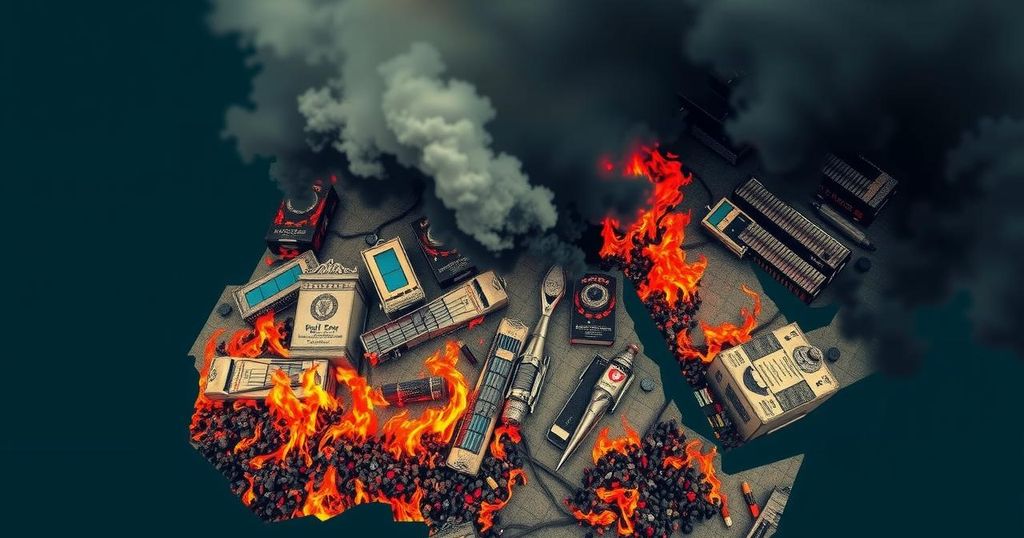The humanitarian crisis in Syria intensifies amidst ongoing conflict, with reported civilian casualties and suspended aid operations. Survivors of Iran’s 2022 protests demand accountability for state violations, and the UN urges South Sudan’s governors to enhance civic freedoms in preparation for upcoming elections slated for December 2026.
The ongoing conflict in Syria is exacerbating a humanitarian crisis, with the UN Office for the Coordination of Humanitarian Affairs (OCHA) reporting a deadly airstrike at the Ad Dabousiyah border crossing. This incident resulted in several civilian deaths, including that of a volunteer from the Syrian Arab Red Crescent (SARC), and damaged vital humanitarian equipment, leading to a suspension of all humanitarian operations at border crossings. The escalation of violence in regions like Idlib and Aleppo has led to the tragic deaths of children, compelling numerous NGOs to cease operations in the affected areas. Despite the turmoil, aid deliveries continue via the Bab Al-Hawa border crossing, with critical supplies reaching Idlib recently.
In Iran, the survivors of the violent repression during the 2022 “Women, Life, Freedom” protests are seeking accountability for human rights abuses. The Independent International Fact-Finding Mission (FFM) has engaged with over 50 Iranian survivors who shared their harrowing experiences of torture and arbitrary detention. These testimonies highlighted the pervasive state surveillance hindering justice efforts. FFM Chair Sara Hossain remarked on the need to adopt a victim-centered approach to justice, emphasizing the importance of these survivors’ voices in holding the state accountable. The FFM is set to deliver a report in March 2025, providing recommendations on addressing these violations and supporting victim rehabilitation.
Meanwhile, in South Sudan, Nicholas Haysom, head of the UN Mission, has urged governors to enhance civic and political freedoms in anticipation of the country’s first democratic elections scheduled for December 2026. At the Governors’ Forum, he stressed the necessity of creating an open political environment to foster trust among citizens. He called on state leaders to prioritize basic service provision and public financial management as foundational steps towards sustainable peace and national development. The UNMISS head also emphasized the importance of beginning security training to prepare for the electoral process.
The humanitarian crisis in Syria is deepening due to ongoing violence, particularly affecting civilians and humanitarian operations. The UN reports highlight the dire implications of the armed conflict, especially in relation to disrupted aid efforts. Additionally, the Iranian government’s response to the protests that erupted in 2022 has drawn international attention, particularly regarding human rights violations against women and children. Lastly, South Sudan is preparing for its first democratic elections, with the UN urging local leadership to establish a conducive environment for civic engagement and public participation while focusing on sustainable peace.
The situation across Syria remains critical, with urgent humanitarian needs exacerbated by relentless violence. In Iran, survivors of state repression continue to advocate for justice, highlighting the importance of a victim-centered approach to addressing human rights violations. Meanwhile, as South Sudan approaches significant elections, the establishment of civic freedoms and effective governance will be essential in fostering sustainable development and peace. The international community must pay close attention to these unfolding events, standing in solidarity with the affected populations.
Original Source: www.miragenews.com






